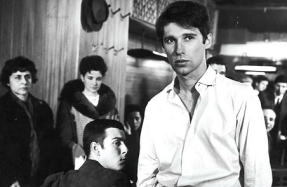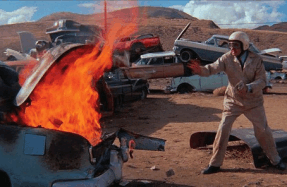
When, due to financial reasons, Leos Carax was forced to shoot Holy Motors (2012) on digital video rather than film, something in him must have cracked. In one particularly memorable scene, Carax crosscuts between tawdry CGI dragons in heat and mock-cunnilingus performed by two writhing bodies wearing motion-capture suits (one of whom is, of course, Carax’s nimble avatar Denis Lavant). What soon becomes clear is that these ultramodern technologies have got nothing on the basic interplay between light and sound in capturing the body in motion, in all its grace, vigour, and vulgarity.
This cynical attitude toward the advent of digital technologies marked a departure from the tormented lyricism of the director’s previous work. Though the pre-digital Carax certainly commingled artifice with reality, explicitly deconstructs the medium of cinema itself—an intervention that, in retrospect, paved the way for the stripped-down melodrama of , which also abounds in (purposefully) synthetic-looking rear-screen projections and muddy digital textures. Where James Cameron’s (2009), the standard-bearer of the boldly digital future at the time of ’ making, encouraged viewers to thrillingly disengage from reality with its vibrantly immersive environments, employs digital he seeks to create the conditions for a different kind of investment, a different kind of truth.






